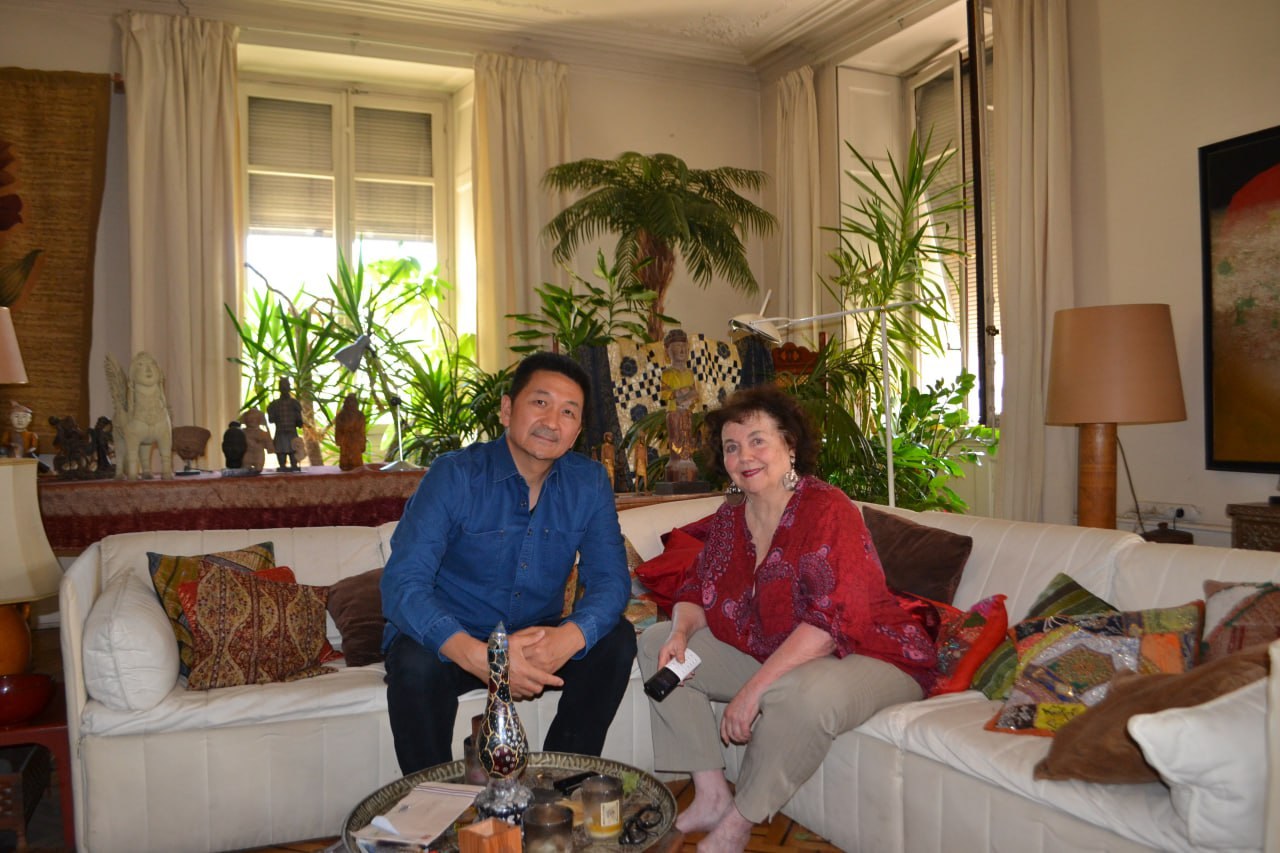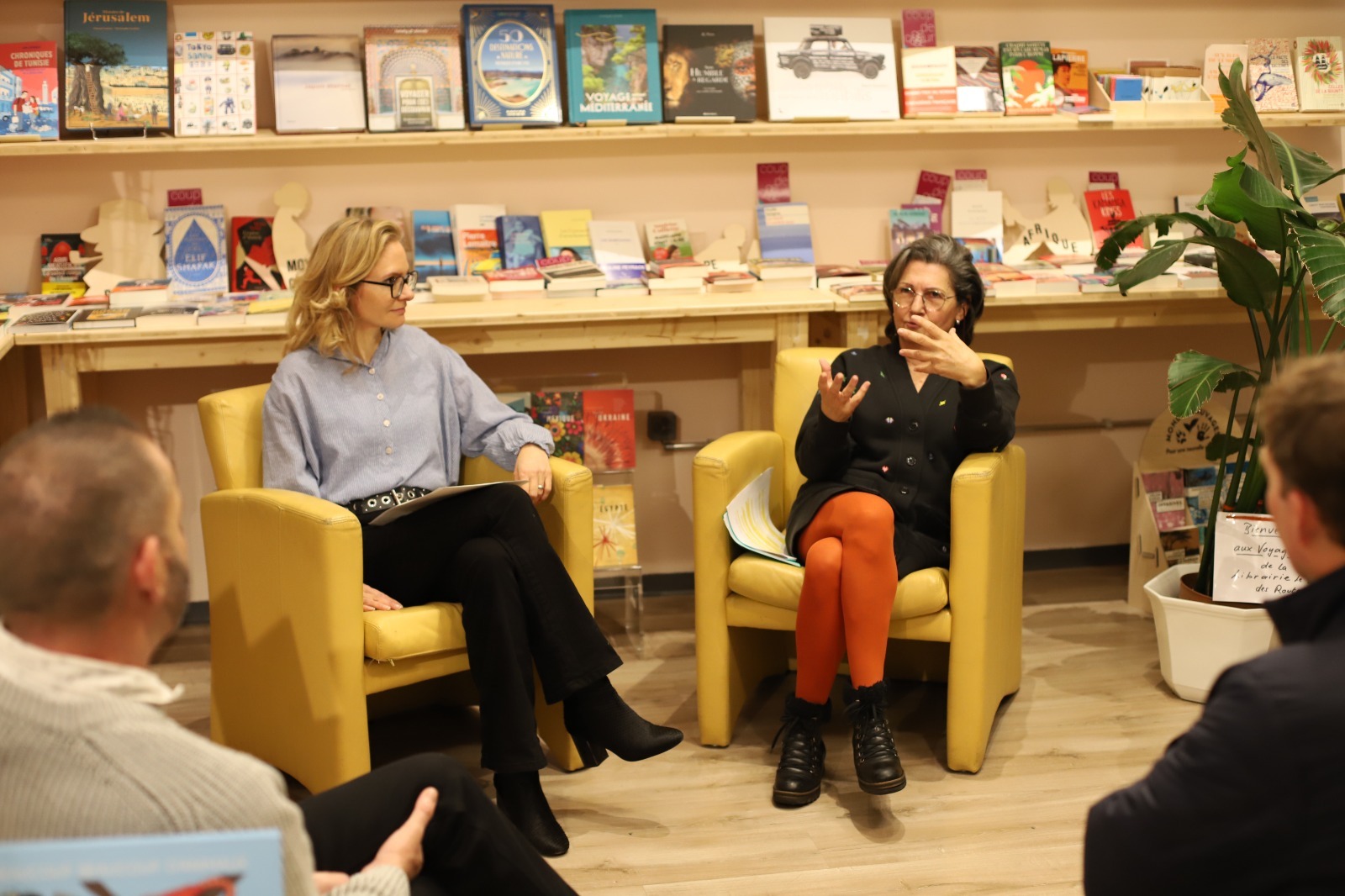Жетекчи тапшырма берди: “28-май гигиена жана аялдардын айыз маалын колдоо” күнүнө карата макала жазыңыз деп. Журналистикада жүрүп жазбаган темам калган жок деп жүрсөм көрсө калыптыр – аялдардын айызы тууралуу…. Айтор, аягы, макала баарына абдан жакты. Кыскача айтсам, дүйнөдө бул күн 2014-жылдан бери белгиленет экен. АЯЛ дүйнөсүнүн бир чоң түйшүгүн биз – эркекзат дале толук түшүнбөйт экенбиз го. Маданиятка, менталитетке жараша бул маселе боюнча жер бетинде түрлүү окуялар жана түркүн чектөөлөр, кор кылуулар, басынтуулар болуп келет экен… Алардын ар бирин келтирбей эле коеюн. Өзүбүз жөнүндө айтсам бул маселе боюнча бир кыргыз эженин айтып бергени эсиме түштү: чоң энеси 13 жаш кезинде биринчи айызы келсе апасы аны катуу сабаган тура, “Шуркуя, имне бирөө менен жаттыңбы?!” деп. Түшүнүктөр ушул сымал болуп келгени да бул чындык. Айтор, мурда түшүнбөсөк да эми түшүнсөк болду. Аял заты жетилген курактан баштап менопаузасына чейин 460 жолу б.а. 3500 күнүн эч кимге айтпаган табу күнүн өткөрүп, 22 литр канын кетирет экен. Ага маселен швейцар аял заты 4400 франк акчасын коротот дешет. А бизде канча коротулушу мүмкүн..? Аялзаты табиятынан эркекке караганда жашоого инстинкти күчтүү болот, анын бирден бир себеби - аларды табият ушинтип ай сайын көп түйшүккө даярдаган сигнал берип турат. Ар бир ай сайын. Түйшүгүңө, жан дүйнөңдүн алачакмагына даяр бол! деген. А эркектерде андай эске салып турчу сигнал жок… Ошол үчүн биз алабарман келет окшойбуз го…
Бар болгула, аялзаты!
La communauté internationale commémore chaque printemps, le 28 mai, une Journée mondiale consacrée à l’hygiène menstruelle. Cette journée a été initiée par l'ONG allemande WASH United en 2014.
Elle vise à briser les tabous et à sensibiliser à l'importance d'une bonne hygiène menstruelle chez les femmes et en particulier chez les adolescentes à traver La communauté internationale commémore chaque printemps, le 28 mai, une Journée mondiale consacrée à l’hygiène menstruelle. s le monde.
Cette journée est essentielle pour s'informer et combattre les clichés : « La première façon de combattre les stéréotypes et les préjugés, c’est l’éducation. Si de fausses croyances persistent, c’est parce qu’il y a un manque d’éducation, d’information à ce sujet. »
Les menstruations ne doivent pas être source d’inégalité : elles pénalisent injustement les femmes et les jeunes filles, particulièrement celles qui vivent en régions rurales. Aucune fille ne doit être privée d’école à cause de ses règles.
Les menstruations à travers le monde
Dans toutes les cultures et toutes les religions, les menstruations des filles ont toujours été un tabou.
Pour certains hommes, avoir une relation sexuelle avec une femme au moment de ses règles est impensable. Le sang menstruel féminin est considéré comme impur.
Dans certaines régions d'Afrique, les femmes sont reléguées dans une case qui leur est réservée. Dans certaines églises chrétiennes (en Ethiopie par exemple), les femmes ne sont pas admises à l’intérieur de l'église (auraient-elles leurs règles par hasard ?). Il leur faut prier hors du bâtiment, parfois dans une chaleur étouffante, abritées par un parasol. Dans l'Islam, une femme qui a le malheur d’avoir ses règles à La Mecque n'a pas le droit de tourner encore et encore, selon le rituel, autour de la grande pierre noire appelée la Kaaba. Chez les musulmans ultraorthodoxes toujours pour la même raison, on ne salue pas une femme en lui touchant la main. Chez les Juifs, quand un couple partage la même couche, et que la femme a ses règles, on pose un coussin entre les deux époux pour qu'ils ne se touchent pas.
En Europe, les mentalités n'étaient pas si différentes. Beaucoup de jeunes filles cachaient ce qu'elles ressentaient comme une sorte de honte. Ce ne que tout récemment que l'on trouve dans certains lycées modernes des serviettes hygiéniques pour les jeunes filles.
Des chiffres pour briser un tabou
Depuis leurs premières menstrues et jusqu’à la ménopause, les femmes ont en moyenne 460 fois leurs règles, ce qui équivaut à environ 3 500 jours de leur vie et déverserait 22 litres de sang menstruel et dépenserait plus de 4400 CHF au cours d’une vie ! Alors pourquoi cela reste-il encore aujourd’hui un grand tabou ? Les règles sont un processus biologique tout à fait normal.
Par contre de nos jours encore, un tiers des adolescentes du monde ont honte d'avoir leurs règles. Les clichés et discriminations sont toujours présents dans le quotidien des filles et femmes. Même en France, 35% des jeunes filles avouent avoir déjà été victimes ou témoins de moqueries sur leurs règles.
La précarité menstruelle et l’absence de toilettes propres et adaptées dans les établissements scolaires aggravent la déscolarisation. Au moins 500 millions de filles et de femmes dans le monde manquent d’installations sanitaires adéquates.
Ensemble, brisons les tabous autours des règles !
Every spring, on 28 May, the international community commemorates a World Menstrual Hygiene Day. This day was initiated by the German NGO WASH United in 2014.
It aims to break taboos and raise awareness of the importance of good menstrual hygiene among women, and in particular adolescent girls, around the world. The international community commemorates World Menstrual Hygiene Day every spring on 28 May.
This day is an essential opportunity to become informed and combat stereotypes: "The first way to combat stereotypes and prejudice is through education. If false beliefs persist, it's because there's a lack of education and information on the subject.
Menstruation must not be a source of inequality: it unfairly penalises women and young girls, particularly those living in rural areas. No girl should be excluded from school because of her period.
Menstruation around the world
In all cultures and religions, girls' menstruation has always been a taboo.
For some men, having sex with a woman when she is menstruating is unthinkable. Female menstrual blood is considered impure.
In some parts of Africa, women are relegated to a hut reserved for them. In some Christian churches (in Ethiopia, for example), women are not allowed inside the church (are they menstruating by any chance?). They have to pray outside the building, sometimes in stifling heat, sheltered by a parasol. In Islam, a woman who has the misfortune to menstruate in Mecca is not allowed to turn again and again, according to the ritual, around the great black stone called the Kaaba. For the same reason, ultra-Orthodox Muslims do not greet a woman by touching her hand. Among Jews, when a couple share the same bed and the woman is menstruating, a cushion is placed between the two spouses so that they do not touch.
In Europe, attitudes were not so different. Many young girls hid what they felt to be a kind of shame. It is only recently that sanitary towels have been introduced for girls in some modern secondary schools.
Figures to break a taboo
From their first menstrual period to the menopause, women menstruate an average of 460 times. That's the equivalent of around 3,500 days of their lives, spilling 22 litres of menstrual blood and spending more than CHF 4,400 over the course of a lifetime! So why is this still such a taboo subject? Menstruation is a completely normal biological process.
But even today, a third of the world's teenage girls are ashamed of having their period. Clichés and discrimination are still present in the daily lives of girls and women. Even in France, 35% of young girls admit to having been victims or witnesses of teasing about their periods.
Menstrual precariousness and the lack of clean, appropriate toilets in schools exacerbate the drop-out rate. At least 500 million girls and women around the world lack adequate sanitary facilities.
Together, let's break the taboos surrounding menstruation!
Каждую весну, 28 мая, международное сообщество отмечает Всемирный день менструальной гигиены. Этот день был инициирован немецкой неправительственной организацией WASH United в 2014 году.
Его цель - снять табу и повысить осведомленность о важности правильной менструальной гигиены среди женщин, в частности девочек-подростков, во всем мире. 28 мая, весной, международное сообщество отмечает Всемирный день менструальной гигиены.
Этот день - прекрасная возможность получить информацию и побороть стереотипы: "Первый способ борьбы со стереотипами и предрассудками - это просвещение. Если ложные убеждения сохраняются, то это потому, что не хватает образования и информации на эту тему.
Менструация не должна быть источником неравенства: она несправедливо наказывает женщин и молодых девушек, особенно живущих в сельской местности. Ни одна девочка не должна быть исключена из школы из-за менструации.
Менструация во всем мире
Во всех культурах и религиях менструация у девочек всегда была табу.
Для некоторых мужчин секс с женщиной во время месячных немыслим. Женская менструальная кровь считается нечистой.
В некоторых частях Африки женщины живут в специально отведенных для них хижинах. В некоторых христианских церквях (например, в Эфиопии) женщинам не разрешается входить в церковь (случайно ли у них менструация?). Им приходится молиться снаружи здания, иногда в удушающую жару, прикрываясь зонтиком. В исламе женщине, имеющей несчастье менструировать в Мекке, не разрешается снова и снова, согласно ритуалу, оборачиваться вокруг огромного черного камня, называемого Каабой. По той же причине ультраортодоксальные мусульмане не приветствуют женщину, прикасаясь к ее руке. У евреев, когда супруги ложатся в одну постель, а у женщины менструация, между ними кладут подушку, чтобы они не соприкасались.
В Европе отношение к этому вопросу было не таким уж и иным. Многие молодые девушки скрывали то, что считали своего рода позором. Лишь недавно в некоторых современных средних школах появились гигиенические салфетки для девочек.
Цифры, позволяющие снять табу
С момента первой менструации до наступления менопаузы женщины менструируют в среднем 460 раз, что эквивалентно примерно 3 500 дням их жизни, проливают 22 литра менструальной крови и тратят более 4 400 швейцарских франков в течение всей жизни! Почему же эта тема до сих пор остается такой запретной? Менструация - это совершенно нормальный биологический процесс.
Но даже сегодня треть девочек-подростков в мире стыдится менструации. Клише и дискриминация все еще присутствуют в повседневной жизни девочек и женщин. Даже во Франции 35 % девушек признаются, что были жертвами или свидетелями дразнилок по поводу месячных.
Неустойчивость менструального цикла и отсутствие чистых и подходящих туалетов в школах усугубляют проблему отсева. По меньшей мере 500 миллионов девочек и женщин во всем мире не имеют надлежащих санитарных условий.
Давайте вместе разрушим табу, связанные с менструацией!





